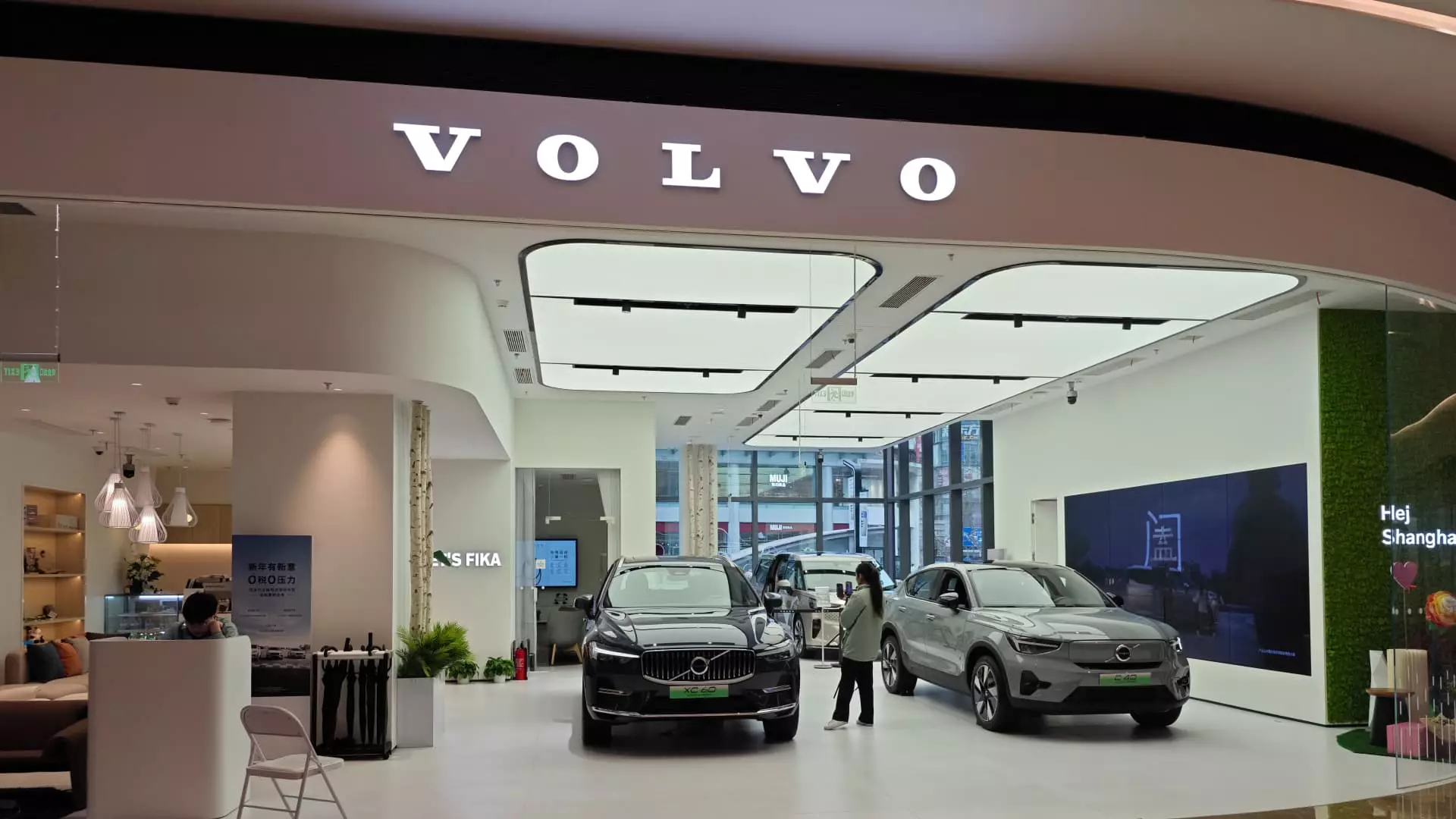Volvo Cars, a Swedish automaker majority-owned by China’s Geely Holding, has recently announced adjustments to its margin and revenue targets. These changes come as a response to the evolving landscape of the electric vehicle market. The company has shifted its focus from a previously set target of 100% all-electric vehicle sales by 2030 to a more flexible 90-100% range that includes mild hybrid models. This decision was influenced by factors such as consumer demand, slow charging infrastructure rollout, withdrawal of government incentives, and uncertainty surrounding tariffs on EVs in various markets.
Despite scaling back its all-electric sales target, Volvo Cars remains committed to the transition towards electric and plug-in hybrid models. The company currently has five fully electric models on the market and five more in development. During its Capital Markets Day in Gothenburg, Sweden, Volvo Cars emphasized its shift towards electric and plug-in hybrid vehicles. The automaker aims to outgrow the premium car market until 2026, focusing on innovative technologies and sustainable practices.
In addition to its product plans, Volvo Cars also announced an extension of its partnership with U.S. chip giant Nvidia. This collaboration is crucial for developing advanced driving assistance and autonomous driving features in Volvo vehicles. Furthermore, the company revealed its intention to streamline its manufacturing processes by adopting a “single technology stack.” This strategic move is aimed at reducing the costs associated with electric vehicle production, making Volvo Cars more competitive in the market.
Recent figures released by Volvo Cars indicate a 3% year-on-year increase in global sales for August. This growth was primarily driven by a 32% increase in European sales, while sales in China experienced a significant decline of 23%. In August 2024, fully-electric and plug-in hybrids accounted for 47% of vehicle sales, with the remaining sales attributed to mild hybrids and vehicles with internal combustion engines. These numbers highlight the ongoing transition towards electric and hybrid vehicles in Volvo’s product lineup.
Volvo Cars’ decision to adjust its targets and strategies reflects the challenges and opportunities present in the electric vehicle market. By adapting to changing consumer demands, infrastructure limitations, and geopolitical factors, the company is positioning itself for long-term success in the evolving automotive industry. Through collaborations with technology partners like Nvidia and a focus on cost reduction measures, Volvo Cars is paving the way for a sustainable and competitive future in electric and plug-in hybrid vehicles.

